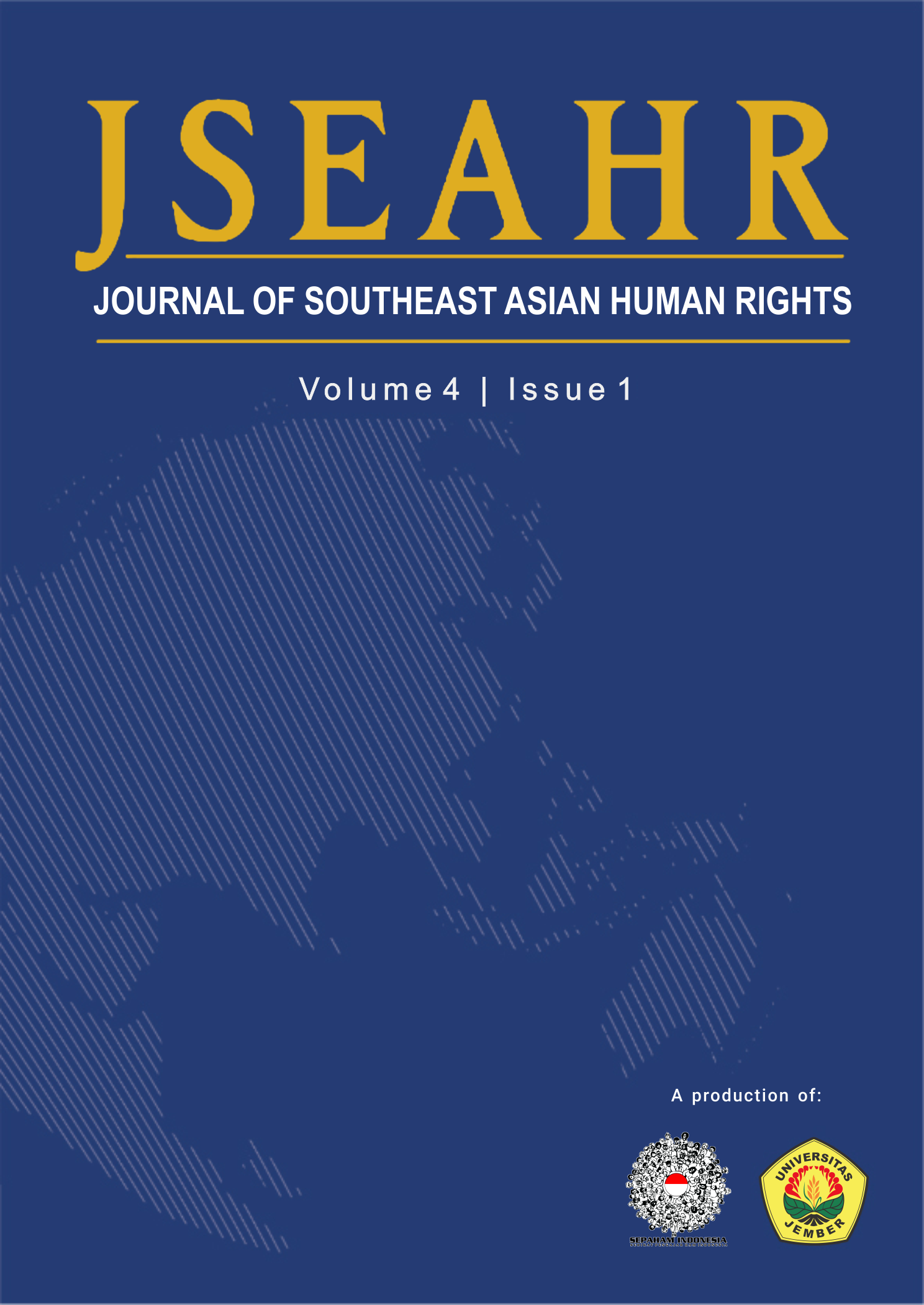The Implications of the NGO Law on the Right to Freedom of Association of Human Rights Defenders in Cambodia
DOI:
https://doi.org/10.19184/jseahr.v4i1.13397Abstract
The right to freedom of association is of particular importance for human rights defenders. Freedom of association is an indispensable agent for human rights change that permits human rights defenders to maintain their civic space and pursue their mission in promoting and protecting rights and fundamental freedoms in a democratic society. In the current legal and political climate, human rights defenders face increasing challenges in the exercise of their freedom of association and other nexus rights vis-à -vis fulfilling their mission to advocate for other peoples’ rights. The Law on Associations and Non-Government Organizations, also known as LANGO, marks a significant turning point for the de jure and de facto exercise of the freedom of association, in particular for the most vocal and active human rights defenders and human rights organizations in Cambodia. This article first explores core elements, limitations and state obligations concerning the right to freedom of association provided by the international human rights treaties that Cambodia has ratified. It further examines key provisions of LANGO regarding the right to freedom of association of human rights defenders. It highlights that LANGO presents a critical challenge to the freedom of association due to its fundamental flaws, ambiguities and inconsistencies concerning its provisions on establishment, operation and suspension or dissolution of associations. This article concludes that LANGO offers extensive regulatory guidelines for all associations and NGOs in Cambodia; yet it also trigger concerns not due to the details, but the lack thereof which could undermine the promotion and protection of the right to freedom of association and other universally recognized human rights and fundamental freedoms in Cambodia as a whole.







